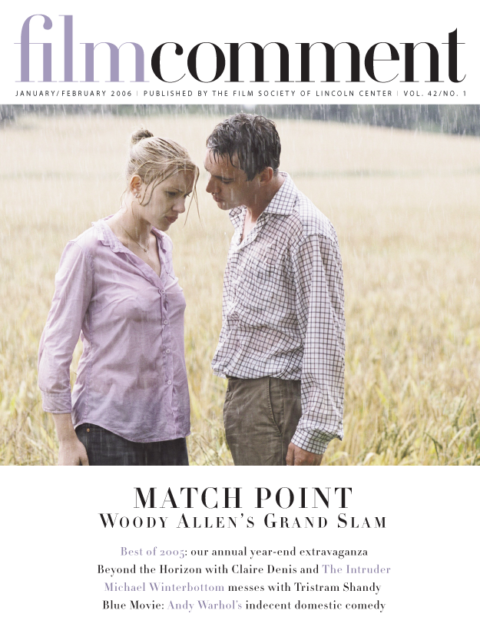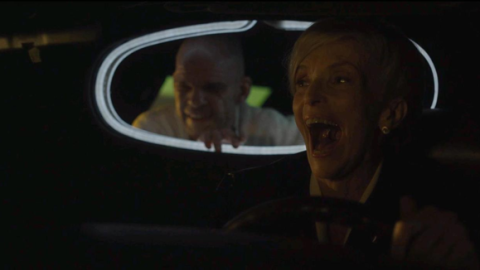
Above all, bodies and races: when I try to understand why this film has been so violently rejected, those are the first words that come to mind. To begin a film with a fellatio scene is nothing. That’s been a permissible audacity for a long time. But if the guy is obese and half-caste, and the girl beautiful and white, well, that’s a scandal: not that cock in that mouth! Anything but naive, Carlos Reygadas obviously knew exactly what he was doing, and the violent reaction of a portion of the critics at Cannes gave the measure of the provocation. In Battle in Heaven, it’s this double linkage of ugliness/beauty and poverty/wealth that provokes the critical avalanche. Marcos is only a servant, the chauffeur employed by the parents of Ana, the young girl who tenderly sucks him off. To depict the poor fucking each other (Marcos and his even more obese wife) is acceptable, but miscegenation isn’t. Reygadas knows it, so he decides to have fun and to push things as far as possible. But this provocation is far from gratuitous, and the mystery of Ana and Marcos’s relationship lies at the heart of the film. “We still want to know why this pretty, young rich girl wants to suck off this fat, filthy guy!” one viewer—my mother no less—told me, particularly exasperated with the movie. And hereís the real scandal: the two have known each other forever! Marcos is Ana’s oldest friend. He has been her driver since she was little, formerly taking her to school, now to the airport. She has confided her secrets to him, told him all the bad things about her parentsóheís a regular living diary, this Marcos. How long has he been in love with Ana? And for how long has he been the most stable element in Anaís life, the rich kid whoís so bored that she prostitutes herself to pass the time? I figured all this out myself, on the basis of several scraps of information. Reygadas doesnít try for a standard psychological portrait with the obligatory childhood memories and well-established sentimental relations, and he leaves it to the audience to fill in the blanks and imagine this curious love for themselves.
As a result, each sequence in Battle in Heaven becomes a unit that has to be decrypted and rearranged. No psychology here, just a comment on the state of a society with its superstructures (army, religion, police, football as a mass spectacle), its horrors that have become banal (the kidnapping of children), and a class divide that continues to deepen. Love is also subject to the relations of production. And this is an old story, not good to recall in this era of ebbing hope.
But what’s most unforgivable to Battle in Heaven‘s detractors is the lyricism that is set free in the film. If Reygadas were a true young Marxist, heíd be given a lot more leeway. After all, he comes from a poor and oppressed country with a moribund film industry that once was glorious. And don’t forget, Straub is also a lyrical Marxist. But he works with a noble high culture and makes it his primary material. In his films the bodies of the poor are always glorious; they stand firmly on their feet, endowed with powerful words. Whereas Reygadas makes a bit too much of it and can never resist going for an effect. He exercises a consciously popular lyricism, ultimately closer to Leone than Tarkovsky. The resulting beauty approaches bad taste and could easily be qualified as “the splendor of the mall.” As with all seducers, and as Jean Renoir used to emphasize, it wouldn’t take much for him to become odious. But how can you resist a filmmaker who uses an old Spanish saeta as if it was an unpublished Ennio Morricone theme? Is real beauty ever pure?






